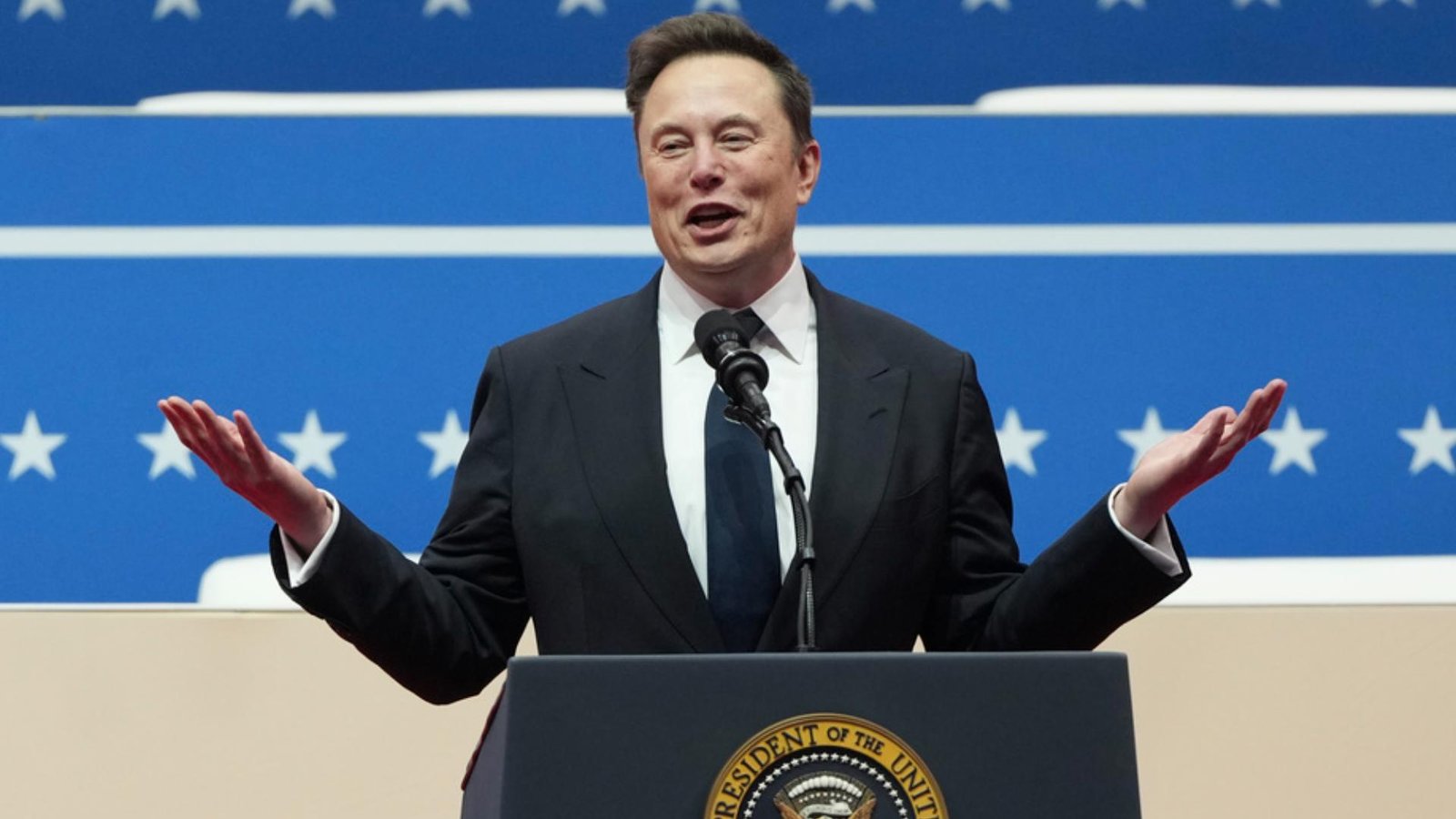Elon Musk’s aggressive downsizing of U.S. government agencies is sparking concerns that private corporations—especially those in his own portfolio—could benefit from a windfall of lucrative contracts. As federal functions are stripped down or outsourced, companies like SpaceX and Starlink, both owned by Musk, stand to gain significant business from the very government agencies he seeks to dismantle.
Musk’s Role in the Trump Administration
Since securing an influential position in Donald Trump’s administration, Musk has advocated for massive reductions in government spending. His vision? A streamlined federal system with minimal bureaucracy, increased reliance on artificial intelligence, and a sweeping overhaul of defense programs. While Musk frames these cuts as a necessary drive for efficiency, critics argue that they serve to enrich private enterprises at the expense of public services.
One of Musk’s most controversial proposals includes eliminating entire federal agencies, a move that would effectively transfer essential government responsibilities to private contractors. Given Musk’s deep ties to the technology and defense industries, watchdog groups warn that such restructuring could lead to conflicts of interest, lack of oversight, and a major power shift away from democratic institutions.
Private Sector Sees Major Opportunities
The corporate world has responded enthusiastically to Musk’s push for privatization. Defense firms, technology giants, and blockchain startups are vying for a larger role in government operations as traditional public services shrink.
Palantir Technologies, a data analytics company with extensive military contracts, has positioned itself as a key beneficiary of these changes. Palantir’s Chief Technology Officer, Shyam Sankar, recently praised the shift, stating that it brings “meritocracy and transparency” to the government’s data operations. CEO Alex Karp took a more aggressive stance, declaring, “This is a revolution—some people are gonna get their heads cut off. We’re expecting to see unexpected things and to win.”
Other tech firms, including cryptocurrency exchange Coinbase, are also looking to capitalize on the restructuring. Coinbase executives have proposed integrating blockchain technology into government spending, a move that could increase transparency but also centralize financial oversight in the hands of private entities.
Meanwhile, leading defense contractors such as Lockheed Martin and Northrop Grumman have voiced support for Musk’s initiative, particularly his plans to accelerate military procurement. General Atomics Aeronautical Systems, the manufacturer of Predator drones, has gone so far as to personally petition Musk to simplify the Pentagon’s defense contracts—an area already worth billions in annual spending.
SpaceX and Starlink: The Biggest Winners?

Among the private enterprises poised to benefit, Musk’s own companies stand out. SpaceX, which has secured over $15 billion in government contracts since 2006, has become a dominant force in aerospace and military operations. The company now controls more than 60% of active satellites worldwide, a feat that has made Starlink an essential tool for U.S. military communications and global conflicts.
With Musk gaining increasing control over Pentagon operations and federal budget decisions, concerns are growing that SpaceX and Starlink will receive an even greater share of defense and infrastructure contracts. Critics argue that Musk’s influence in government puts him in a unique position to steer contracts toward his own ventures, effectively using federal funds to expand his corporate empire.
Weakening Oversight and Ethical Concerns
Musk’s expanding role in government procurement has drawn sharp criticism from ethics watchdogs, who warn that his influence removes essential checks against corruption and self-dealing. The Trump administration has already taken steps to weaken oversight, firing 18 inspectors general—officials responsible for investigating ethical breaches in government contracts.
Moreover, Musk has been granted significant leeway in making procurement decisions without being subject to strict financial disclosure requirements. As a “special government employee,” he is exempt from some traditional conflict-of-interest rules, allowing him to oversee federal contracts without fully revealing his financial stakes.
Donald Sherman, executive director of Citizens for Responsibility and Ethics in Washington (CREW), has been vocal about the potential for abuse: “You don’t need to be an ethics expert to see the massive problem here. A billionaire who funds the president’s campaign and has government contracts of his own is now in charge of deciding who gets paid.”
CREW, along with other advocacy groups, has filed lawsuits against Musk’s restructuring efforts, arguing that they violate federal transparency laws. However, legal challenges have so far failed to halt the Trump-Musk agenda, with a judge allowing the reforms to proceed.
Trump Defends Musk’s Role

Despite mounting ethical concerns, Trump has repeatedly defended Musk’s position within his administration. The White House insists that Musk will “excuse himself” from any government decisions where conflicts of interest arise. However, critics argue that this voluntary recusal is inadequate, especially given the lack of external oversight.
Musk’s defenders claim that his business acumen and technological expertise make him an ideal candidate to spearhead government reform. Supporters argue that SpaceX’s cost-saving innovations have already benefited NASA and the military, and that similar efficiency could be brought to other federal programs.
Long-Term Consequences: The Privatization of Government
The ramifications of Musk’s restructuring plan could extend far beyond the immediate transfer of contracts. If the federal government continues to shrink while private enterprises take over essential functions, the balance of power in the U.S. could shift dramatically toward corporate elites. This transformation raises several pressing questions:
- Will private companies prioritize national interests over profit motives?
- How will reduced government oversight impact transparency and accountability?
- Could privatization lead to increased costs for taxpayers in the long run?
Critics argue that the dismantling of federal agencies could permanently weaken democratic institutions, creating an environment where a few powerful business figures exert disproportionate control over public policy.
Conclusion
Elon Musk’s government cuts have sparked both praise and alarm, depending on where one stands on the role of private enterprise in governance. While supporters view his cost-cutting measures as a much-needed efficiency drive, opponents see a dangerous power shift that could enrich corporations at the expense of public services.
As Musk continues to shape the federal landscape, the debate over privatization, corporate influence, and government ethics is far from over. Whether these reforms lead to a leaner, more effective government or a new era of unchecked corporate dominance remains to be seen.




